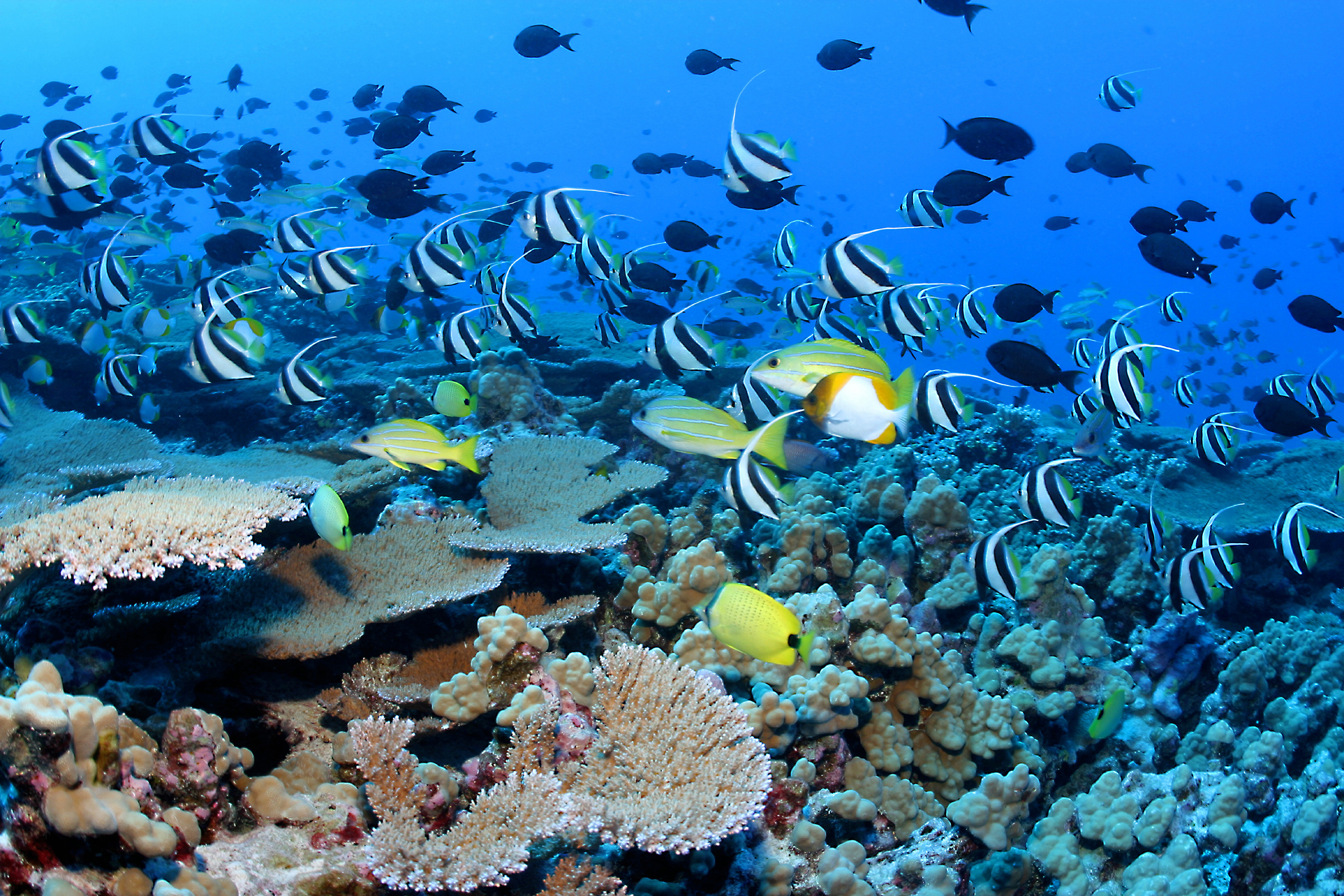Coral reef fishes that spend their lives picking clean other, bigger fish provide a more honest valet service when they work in pairs, showing that it pays off to be cooperate and behave.
 That's according to a study in the journal science this week from a team led by Redouan Bshary from the University of Neuchâte in Switzerland.
That's according to a study in the journal science this week from a team led by Redouan Bshary from the University of Neuchâte in Switzerland.
If you've ever been diving on a coral reef or watched a TV documentary, you might have seen something called a cleaning station, where small, cigar shaped fish called wrasse congregate and dance about advertising their services for hire as cleaners - picking off bits of muck, dead scales and parasites from other fish.
When cleaner fish work in pairs they are posed with a prisoner's dilemma: should they cheat on their client fish and their partners by taking a mouthful of nutritious mucous instead of plucking off a parasite?
It turns out that the cleaner fish much prefer to take a bite of mucous instead of doing their proper cleaning job. But when they do, it's usually their last mouthful because giving their clients a close nip sends them swimming off in a huff. Honest members of a cleaning duo run the risk of loosing out twice over if their cheating partner sends off the client when they themselves haven't gained from a morsel of mucous.
This new study suggests that as long as the fish being cleaned decides when it's time to leave, cleaner fish working in pairs are much less likely to cheat than when they work solo.
What Bshary and his team built a game-theory model to predict the outcome of the cleaner fishes' prisoner's dilemma which showed that the cleaner partnership gets more food when they are both honest compared to when one of them cheats. And the fish visiting the cleaning station also benefit from a better overall service and fewer nasty nips.
The researchers also went out and watched cleaning stations on coral reefs, and saw that when cleaners operated in pairs, the client fish jolted less - that is a response to being nipped, compared to when either female or male fish worked alone. And the difference seems to come down to the females, rather than the males changing their behaviour.
In the laboratory too, the cleaner fish showed their willingness to do the decent thing and not cheat - when offered a choice of food, the paired fish would eat more of their non-preferred food compared to when they were on their own.
All in all, this gives us a better understanding of how the remarkable cleaner-client relationships have evolved and why everyone involved doesn't cheat all the time. And similar things may well be going in other pairs of species that get along and do eat other favours, like the nitrogen fixing bacteria that live inside the roots of leguminous plants, and the butterfly larvae that produce sugars to feed ants that then defend the butterflies from predators.
And it just goes to show that there certainly are weird and wonderful things that go on in the natural world.
- Previous I think therefore I move
- Next 9000 Year Old TB










Comments
Add a comment